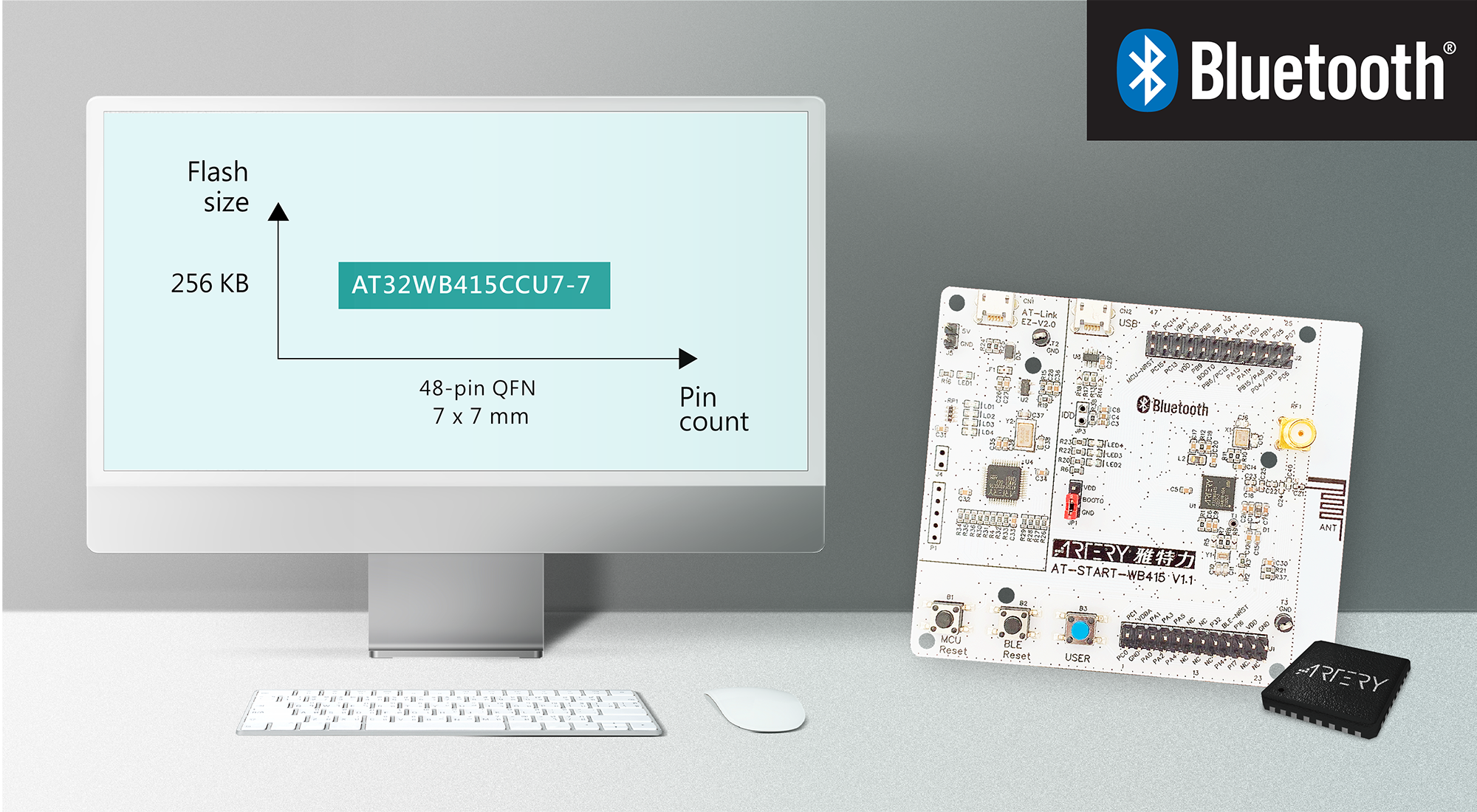AT32WB415 embeds a low-power radio that is compliant with Bluetooth Low Energy SIG
specification 5.0. It contains rich communication interfaces, Bluetooth radio frequency
(RF) transceiver and baseband features, delivering robust wireless data signal
processing capability, with up to -97 dBm sensitivity in Bluetooth RX, and -20 dBm ~ +4
dBm in Bluetooth TX. The antenna embedded in the device can cover as far as 30m, up to
2Mbps, for powerful connectivity.
The device is based on ARM®Cortex®-M4 core operating at a frequency
of up to 150 MHz. It integrates a digital signal processor (DSP) and memory protection
unit (MPU), up to 256 KB Flash memory and 32 KB SRAM. The device also incorporates a
Security Library (sLib) developed by ARTERY, allowing users to program any part of the
internal Flash memory protected by such mechanism. This security library is
code-executable but non-readable, making it more secure for the solution providers to
write core algorithm in it, but also be more convenient for them to carry out
second-level development. It features a comprehensive range of peripherals, namely 1x
12-bit 8-channel ADC, 2x CMPs, 4x UARTs, 1x SPI, 1x I2C, 1x CAN, 1x advanced
timer and 7x general-purpose timers. The AT32WB415 series operates in the temperature
range of -40 to 105oC. Compared to legacy MCUs, in which functions are
relatively scattered, AT32WB415 provides an all-in-one solution for the development of
Bluetooth technology products. Besides, its reduced PCB size and the optimized RF layout
will bring more excellent solutions for various applications such as consumer
electronics, smart home, Internet of Things (IoT), among others.

